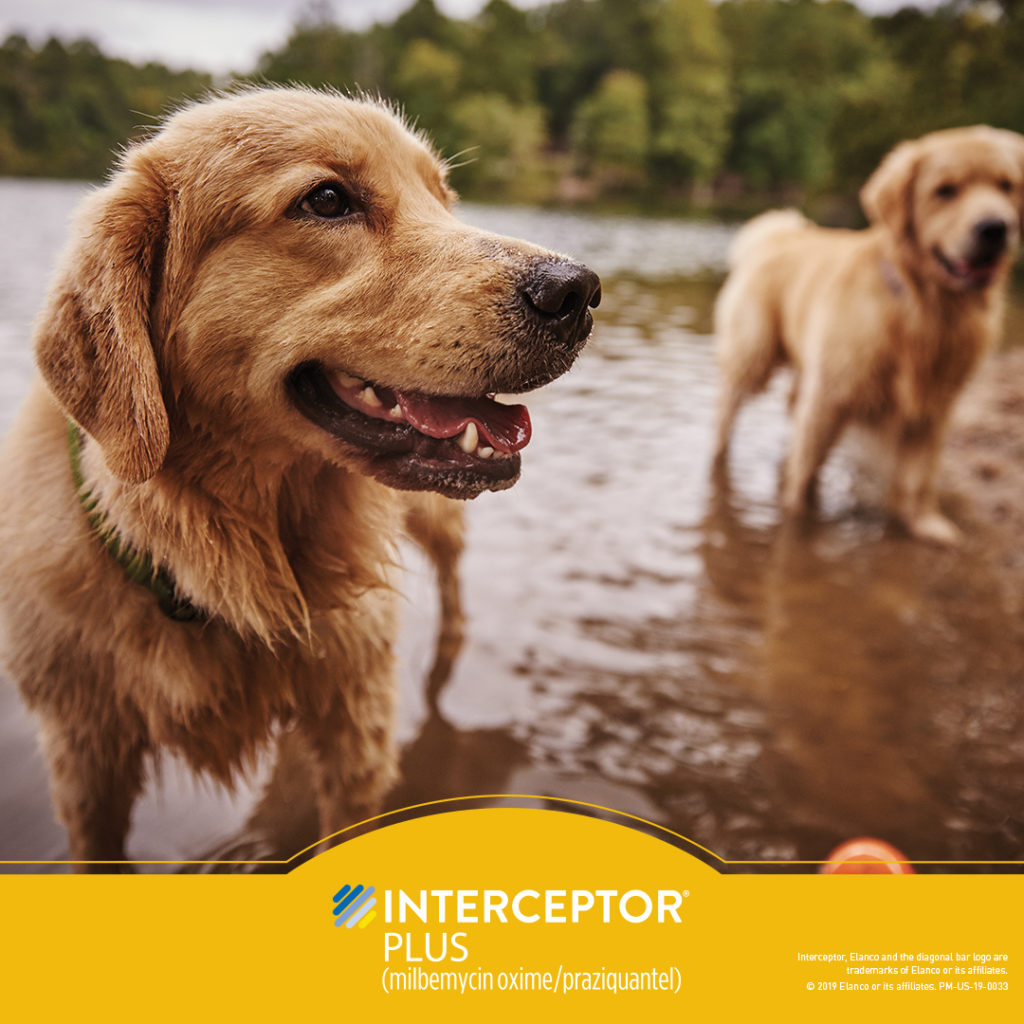
AUGUST IS PARASITE PREVENTION MONTH.
Gastrointestinal parasites are not only primary disease agents in companion animals, some are also transmissible to people. Of all the diagnostic techniques used to detect gastrointestinal parasites, none is more accurate and reliable than centrifugal fecal flotation
Dogs and cats are more than just pets; they are members of the family. It is important to keep your companion animal healthy and free of intestinal parasites
Dogs and people can bring in different parasites that can affect the indoor cat.
A monthly chew that protects against five threats to your dog Interceptor Plus protects against five dangerous threats to your dog. Heartworm isn’t the only parasite that poses a danger to your pet. Your dog may also be at risk for common intestinal parasites, including roundworms, hookworms, whipworms and tapeworms. These parasites can cause diarrhea, vomiting, anemia, and in some cases, even death. Interceptor Plus is a chewable tablet for dogs More than 96% of dogs accepted the chicken-flavored chewable tablet. Safe for puppies and small dogs Interceptor Plus is safe for puppies as young as six weeks and for dogs weighing as little as two pounds. There’s no need to change medication as he gets older or grows larger. For these reasons, Interceptor Plus is our choice for preventing heartworm disease and controlling these intestinal parasites. Please let us know if you have any additional questions about this recommendation. Our responsibility as veterinarians is to provide pets with products we believe are the best choices for their individual needs. As a responsible and loving pet owner, we know you want the best for your pet. Together, we can help pets live longer, healthier, higher-quality lives.
Dental care for your pet
Did you know that your pet’s oral health is very similar to your own? Would you go months without brushing or years without visiting the dentist? According to the American Veterinary Medical Association (AVMA), 80% of dogs and 70% of cats have some form of dental disease by age 3! Many pet owners are unaware of the fact that dental disease can lead to painful oral infections, tooth loss, problems eating, and of course bad breath! There is also medical literature that confirms a correlation between oral disease and systemic diseases that can affect your pet’s vital organs, including the heart, liver, and kidneys.
The National Pet Dental Association (NPDA) strives to educate pet owners on dental disease and how to prevent it. Here are a few suggestions to help ensure your pet’s oral health.
What you can do at home
- It is important to become familiar with your pet’s oral cavity. Starting at an early age, you should touch and examine your pet’s mouth, looking for abnormal lesions or areas of pain.
- Oral rinsing and brushing reduces tartar and bacteria build-up. Make sure to only use pet safe toothpastes and rinses, as human products can be toxic for your pet.
- Offering your pet oral chews designed specifically for oral health is an easy and effective way to help reduce the build-up of tartar on the teeth. Always monitor your pet when using dental chews to avoid accidental choking.
What your veterinarian can do to help
- Your veterinarian should complete an oral examination during every wellness visit to assess your pet’s oral health status.
- They will determine if your pet requires a dental cleaning under general anesthesia or a non-anesthetic dental cleaning.
- Regular dental cleanings are important to keep your pet healthy and pain free.
- Dental x-rays are also recommended periodically to expose dental disease that may be lurking below the gum line.
Anesthetic dental cleanings are necessary when your pet is showing signs of advanced dental disease. Full mouth x-rays can be taken while your pet is under anesthesia to reveal any pathology below the gum line. A non-anesthetic dental procedure is a dental cleaning completed without anesthesia. The non-anesthetic approach is a great option for preventive care. However, not all pets are suitable candidates for this procedure, and your veterinarian will determine which is the best option for your pet based on their overall health condition.


